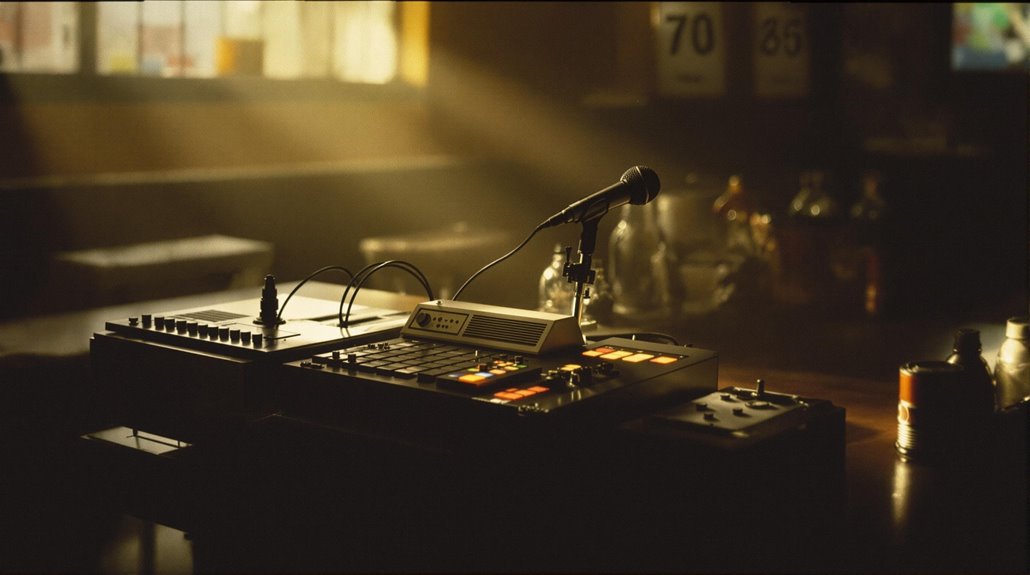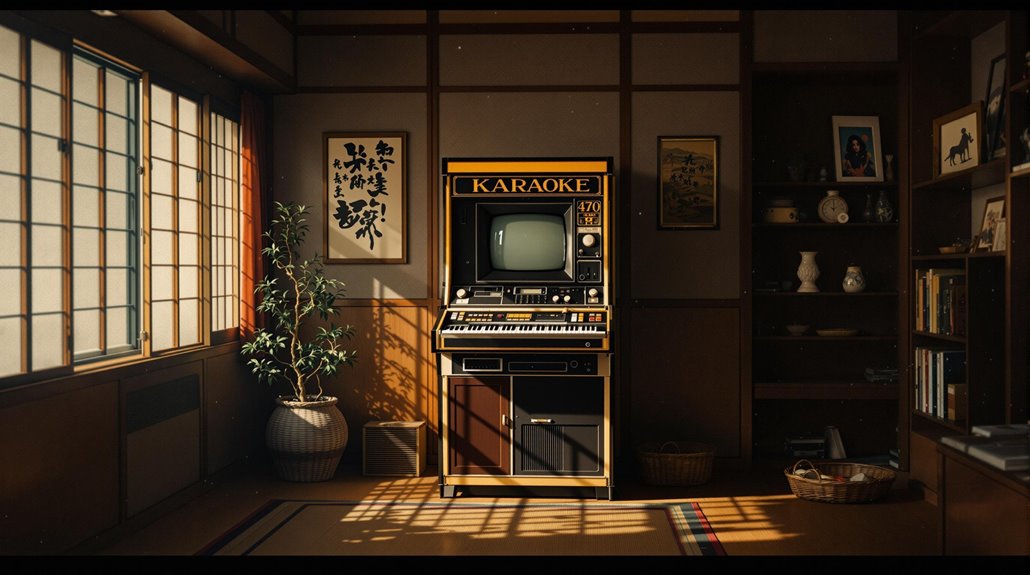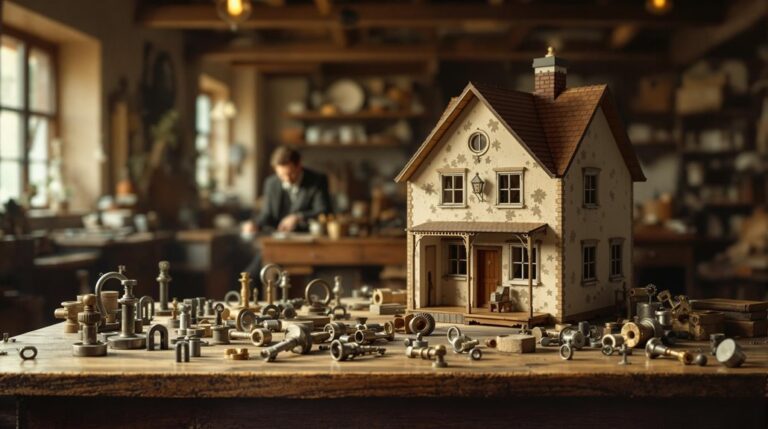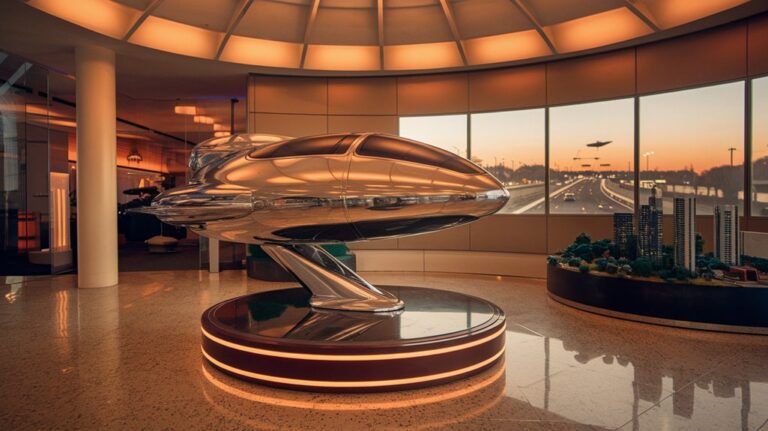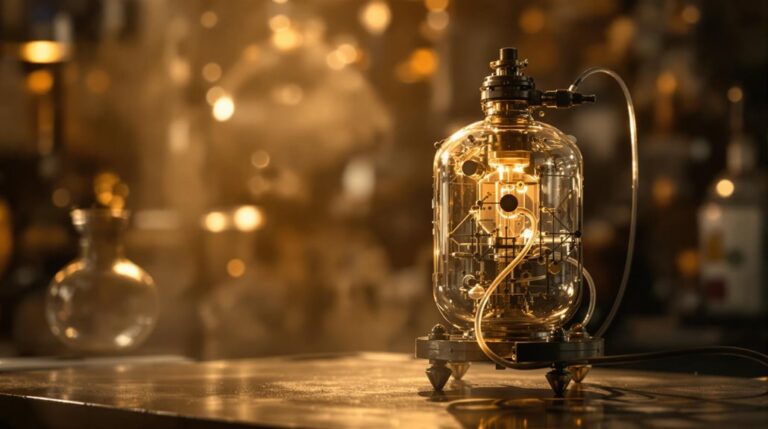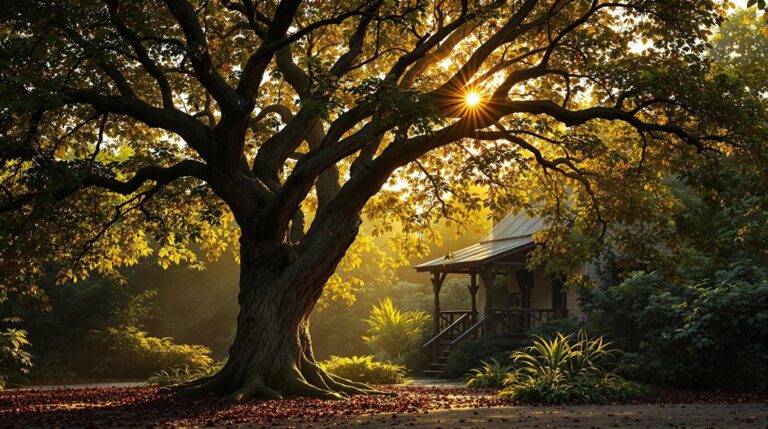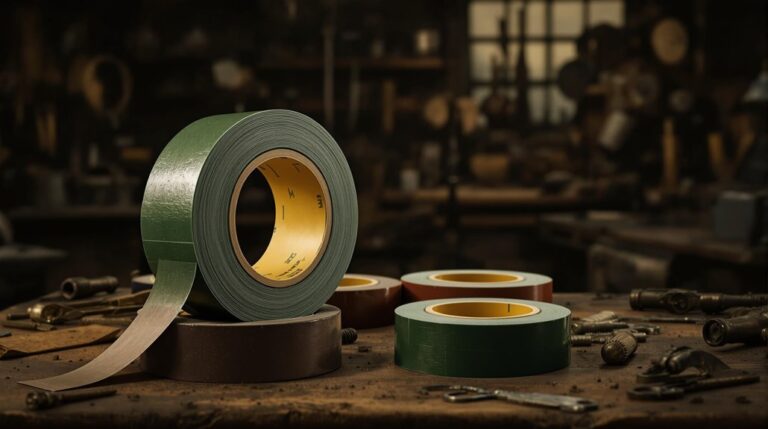Daisuke Inoue’s Karaoke Machine: The Modest Music Box That Launched a Party Industry
You've probably sung your heart out at a karaoke bar, but have you ever wondered how this entertainment staple came to be? In 1971, a Japanese musician named Daisuke Inoue created the first karaoke machine almost by accident. His humble invention, the 8 Juke, started as a simple solution for businessmen who wanted to sing after hours. What followed was an unprecedented cultural phenomenon that would transform social gatherings and entertainment forever.
The Accidental Inventor: Daisuke Inoue's Musical Journey
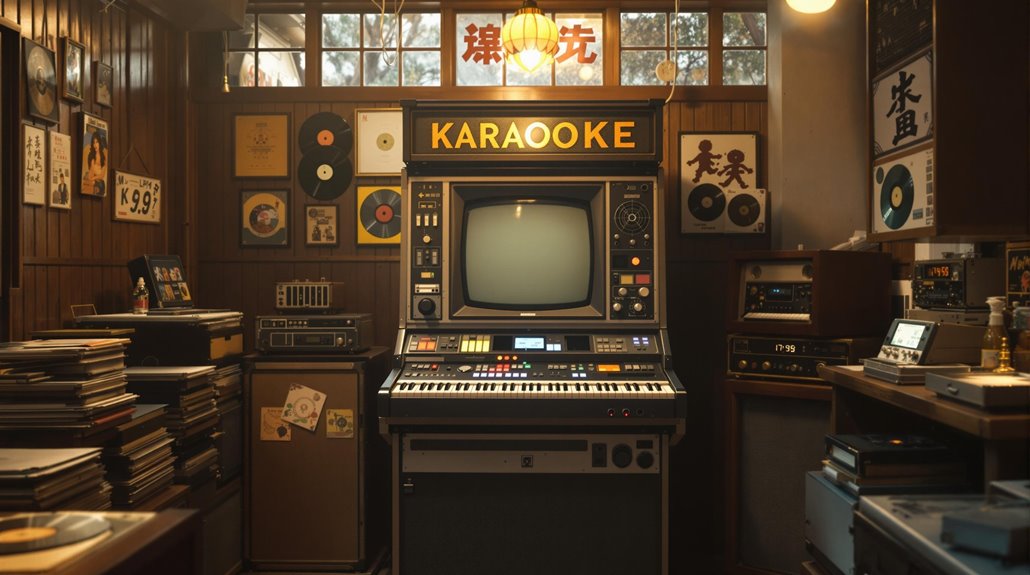
Three key events shaped Daisuke Inoue's path to inventing karaoke: his childhood accident, his musical limitations, and his adaptive playing style.
Inoue's musical evolution began after falling from a second floor at age three, leading a Buddhist priest to rename him "Daisuke" (Big Help). Despite being unable to read music, you'll find his limitations drove innovation. He chose drums in high school, believing they'd be easiest to master. Moving from drums to keyboard playing, he memorized over 300 songs to meet customer demands. In 1971, he created his groundbreaking invention using an eight-track tape player.
His personal anecdotes reveal how he turned weaknesses into strengths. Working as a hiki-katari in Kobe bars, he developed a unique talent for matching singers' abilities. By slowing down and adjusting his playing style, he earned the nickname "Dr. Sing-along."
This adaptability led to his breakthrough moment: recording backing tracks for a businessman's trip, ultimately inspiring the karaoke machine's creation.
Birth of the 8 Juke: A Simple Solution for Singing
While many groundbreaking inventions emerge from complex research, the first karaoke machine sprang from Daisuke Inoue's simple desire to help people sing. His 1971 creation, the 8 Juke, marked the humble karaoke origins with a straightforward design: an 8-track player, microphone, amplifier, and coin slot.
As a self-taught musician, Inoue learned his craft through listening and repetition. This pioneering singing technology transformed Japan's entertainment scene by letting amateur vocalists perform with pre-recorded instrumental tracks for just 100 yen per song. As the son of a pancake vendor in Osaka, Inoue's modest beginnings never stopped him from revolutionizing entertainment.
You'd find the 8 Juke's clever features, like a reverb box to enhance vocals, making it easy for anyone to sound better while singing. Starting with just 11 units in Osaka bars, the machine quickly proved its worth at $425 per unit.
The 8 Juke's popularity exploded, with 25,000 units soon operating across Japan, laying the foundation for today's global karaoke culture.
The Patent-Free Revolution in Entertainment
Despite having created one of entertainment's most influential devices, Daisuke Inoue made a decision that would forever change the karaoke industry: he chose not to patent his invention.
He didn't consider karaoke worthy of a patent, believing patents were meant for groundbreaking innovations that created something from nothing.
The patent implications of this choice were far-reaching. While Inoue missed out on potential royalties exceeding $100 million annually, his decision released unprecedented innovation freedom in the entertainment world. Today's patent disputes frequently result in costly legal battles over entertainment technology.
Without patent restrictions, karaoke technology evolved rapidly, spreading globally and adapting to various venues and formats. The market has grown to $5.48 billion in 2022, with projections reaching $6.52 billion by 2030. Modern systems now feature advanced audio systems and seamless connectivity options.
Looking back, Inoue remains content, believing that a patent might've actually hindered karaoke's worldwide success and technological advancement.
From Bar Rooms to Living Rooms: Karaoke's Cultural Impact
Since its humble beginnings in Japanese bars, karaoke has transformed from a simple entertainment novelty into a global cultural phenomenon that's reshaped how people socialize and express themselves.
You'll find it breaking down social barriers and fostering cultural exchange in diverse settings, from traditional drinking establishments to modern living rooms. The technology's widespread adoption can be traced back to Daisuke Inoue's invention, which started as a basic playback device for singing.
In Japan, where one-third of the population participates, karaoke serves as more than entertainment – it's an essential tool for social bonding. The industry generates significant revenue, with U.S. karaoke bars alone earning $435 million in 2017.
You can now experience karaoke through various platforms, from dedicated karaoke boxes to mobile apps like Pokekara.
This accessibility has expanded its role beyond pure entertainment, as you'll find karaoke spaces being used for business meetings, education, and even as alternatives to recording studios.
The technology's evolution has truly democratized the singing experience, making it an integral part of modern social life.
The Global Karaoke Boom: Market Growth and Trends
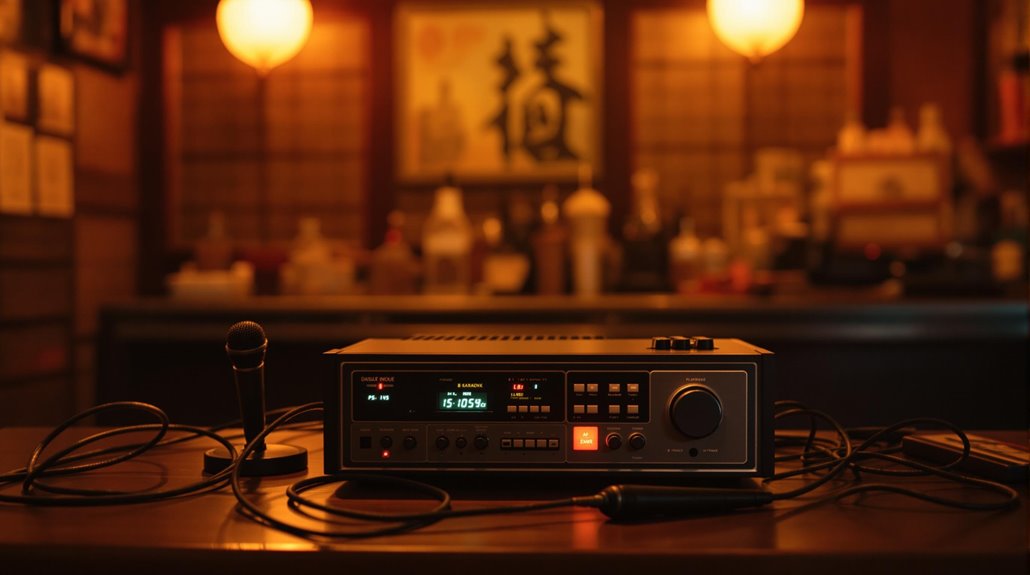
The karaoke industry has transformed from a niche entertainment segment into a global powerhouse, with the market reaching USD 5.4 Billion in 2023.
You'll find the strongest market expansion in Asia Pacific, which commands 42.3% of the global share, with Japan and China leading the charge.
Consumer engagement trends show a clear shift toward portable devices, which dominated 71% of the type segment in 2023. The market is experiencing a CAGR of 7.9% through 2030, indicating robust growth potential.
You're part of a market that's evolving rapidly, with All-in-One Systems capturing 39% of product sales. The rise of social media integration through platforms like YouTube and TikTok has particularly attracted younger audiences to karaoke.
While commercial venues still rule with 70.6% of the market share, there's growing momentum in home-based entertainment.
Looking ahead, you can expect the market to hit USD 7.0 Billion by 2033, driven by social gatherings and AI innovations reshaping how you experience karaoke.
Digital Evolution: Modern Karaoke Technology
Modern karaoke technology has revolutionized how you engage with music, transforming basic song playback into an immersive digital experience.
Today's systems feature extensive digital libraries that give you instant access to thousands of songs across genres and languages, while cloud storage guarantees you'll never run out of options. The integration of advanced AI technology enhances video quality and streaming performance for a superior entertainment experience. Digital song databases have replaced traditional physical media like discs and tapes completely.
Advanced audio processing capabilities enhance your performance in real-time, with pitch correction and voice effects that can make you sound like a professional.

